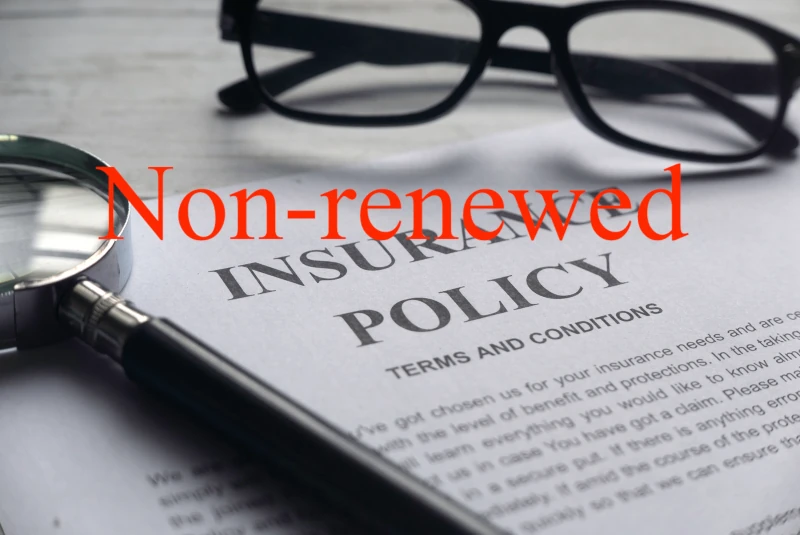Now that fall is here, the danger of fire increases with each month until the rains come. If you live in a state other than California, as we’ve seen, the risk may come from extreme weather events like hurricanes or heavy rainstorms that create flooding, or devastating tornadoes. In Northern California, we experience long periods of drought that make us more susceptible to floods when the heavy rains do come and ravaging wildfires when they don’t.
Impacts on Homeowners Insurance
According to a variety of news reports, a number of well-known insurance companies are not renewing homeowner policies in California in 2024. The current extreme weather concerns and the fear of greater climate changes are often highlighted as reasons. KCRA News stated that “In the last year, seven of the 12 largest insurance groups in California have either paused or restricted new homeowner policies.”
That same news organization reported:
“State Farm and Allstate have paused all new policies while Farmers is capping the number of new policies it will write each month, according to the Department of Insurance. Those three companies alone handle more than 40% of the business in California’s insurance market.”
Climate change, increased wildfires and California’s regulations are named as reasons for the non-renewals.
Wildfire Risk
Climate change, with its increasing frequency and severity of wildfires, is a driving force. California wildfires are some of the most destructive in history. Naturally, they lead to significant losses for insurers. Opting to not renew policies in areas these companies consider at high risk, particularly in wildfire-prone regions, like the wildland-urban interface, is one way to mitigate their risk.
State Regulatory Environment
Insurers blame in part California’s strict regulations governing insurance pricing and policy changes, which go through the Department of Insurance. Insurers must receive approval to raise rates, which can delay or restrict their price adjustments. So many companies are opting for non-renewal in high-risk areas rather than waiting for approval to raise rates to a level they feel reflects their real level of risk.
Rising Reinsurance Costs
We may not often consider this, but reinsurance – insurance that covers insurance companies themselves – has also become more expensive. This is due to the increasing risk associated with California’s climate-related events like wildfires, droughts and extreme weather. Non-renewal of certain policies is seen as a way for these insurers to reduce their own risk exposure.
None of these reasons may make you feel better about the situation.
Often, taking action can begin to make a difference. Our youth want everyone to take stronger action against climate change. They know that individual changes in behavior, like using less energy – turning down the thermostat, driving less and eating a more plant-based diet – can help. They also know that major changes in the kind of energy we use as a nation needs to change. But while we work on those changes, there are ways we can better protect our homes.
In an earlier post, we talked about defensible space. There are other ways to protect our homes and make them more acceptable to insurance carriers.
Fire-Resistant Roofing
California already mandates that all new roof coverings and significant roof replacements be fire-resistant. According to the California Building Code, this is classified as “Class A,” with materials like metal, tile, clay, slate or asphalt shingles treated for fire resistance.
Gutters and Eaves
Any fire inspector will tell you that keeping gutters clear of leaves and debris can mitigate fire danger. You can also install metal gutters and keep them clean. Be sure to box in or enclose your eaves with fire-resistant material, keeping them tightly sealed with no gaps where flying embers could enter.
Fire-Resistant Decks and Patios
Using non-combustible materials like concrete, metal or stone for decks, patios and walkways is another strategy. Many of us already have a wooden deck. In that case, using fire-resistant treatments and keeping the area underneath it free of leaves and debris is a useful safeguard.
Windows and Doors
If you live in an older home, you may still have single-pane windows. Installing dual-pane windows, especially those with tempered glass, which are more resistant to breaking from the heat, can help to harden your home, making it more fire -resistant. Use metal or fire-rated doors for entryways.
Be sure your garage doors have tight seals, and consider installing weather stripping to prevent embers from entering.
If you have questions or need more information about homeowner insurance issues, please check out californianonrenewal.org.


